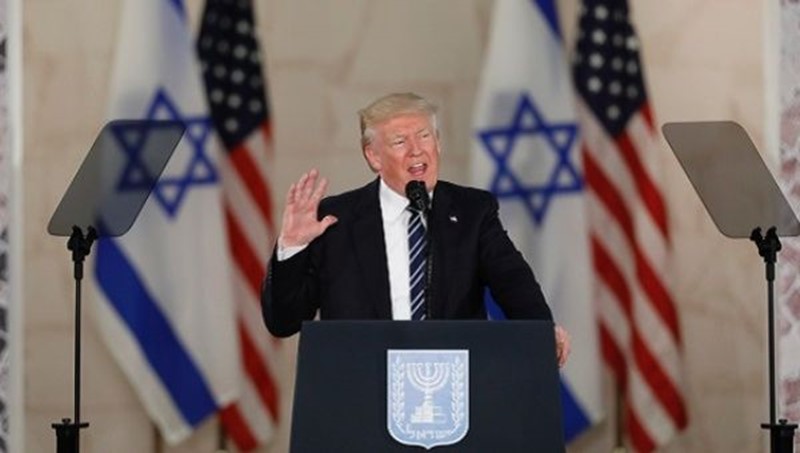
In December 2017, it was reported that President Trump’s ambassador to Israel, David Friedman, had asked the State Department to stop referring to the occupied territories as “occupied.” Friedman, along with a number of other senior advisors to Trump, including his Middle East envoy Jason Greenblatt and son-in-law Jared Kushner, have close ties to Israel’s right-wing and illegal settler movement. Last year, Palestinians in the occupied West Bank, East Jerusalem, and Gaza, marked 50 years living under Israeli military rule.
Yousef Munayyer, Political analyst at the Arab Center of Washington, DC, executive director of the US Campaign for Palestinian Rights. See Mr. Munayyer’s recent op-ed in The Forward, “The Two State Solution Is Dead. Supporting It Is Supporting Occupation”:
“The State Department's omission of the term ‘occupied territories’ in their human rights report covering the West Bank and Gaza is a new low. How is it possible to even understand the human rights obligations of actors on the ground when the framework of occupation, for which international humanitarian law clearly delineates rights and responsibilities, is discarded?
“We've become accustomed to being shocked by the Trump administration and given the stated positions of people like David Friedman, Trump’s ambassador to Israel, it is not surprising that such views are not just tolerated but rife in the administration as a whole.
“Perhaps, however, this is a clarifying moment. If the territories are not occupied, what will the State Department tell us their status is? Are they prepared to acknowledge the Apartheid reality that Israel has established on the ground? They may have just unintentionally done so.”
Zaha Hassan, Human rights attorney and Middle East Fellow at New America. During Palestine’s bid for UN membership and Quartet-sponsored talks between 2010 and 2012, Ms. Hassan was the coordinator and legal advisor to the Palestinian negotiating team:
“The US State Department has dropped usage of the term ‘occupied territories’ in its human rights reports in describing Gaza, the West Bank and the Syrian Golan Heights, despite numerous UN Security Council resolutions, an advisory opinion by the International Court of Justice, international consensus, and five decades of US law and official policy.
“Apparently, Israeli soldiers, checkpoints, a thirty-foot high concrete separation barrier weaving in and out of the West Bank around fortified illegal Jewish settlements are not evidence enough to the Trump Administration that a military occupation over Palestinians exists, one that includes forced population transfer in violation of the Fourth Geneva Convention.
“It appears that US Ambassador David Freidman’s personal and financial ties to illegal Israeli settlements in the occupied territories is influencing the direction of US foreign policy in Israel/Palestine away from the US national interest and international peace and security toward that of Israel’s extreme right wing. This is uncharted territory and one that is incredibly dangerous for all involved in the region and beyond.”
Views expressed below from experts on this very serious issue:
Noura Erakat, Human rights attorney, Assistant Professor at George Mason University, editorial board member of the Journal of Palestine Studies, and Co-Editor of the e-zine Jadaliyya. Former International Legal Advocate with the BADIL Resource Center for Palestinian Residency & Refugee Rights:
“Unfortunately, this move is consistent with the Trump administration’s policies towards Israel/Palestine, including moving the US embassy to Israel to Jerusalem in violation of 70 years of official US policy and international law, and cutting funding for humanitarian aid to Palestinian refugees.
“It is yet another nail in the coffin of the two-state solution and a major step towards making permanent the apartheid regime Israel has implemented in the territories it controls between the Jordan River and the Mediterranean Sea, in which millions of Palestinians are treated as second class citizens inside Israel and denied even the most basic of rights in the occupied territories, simply because they are not Jewish.
“What remains to be seen is whether the international community responds with the urgency that this development merits, with boycotts, sanctions, and arms embargoes, as occurred during apartheid in South Africa.”


